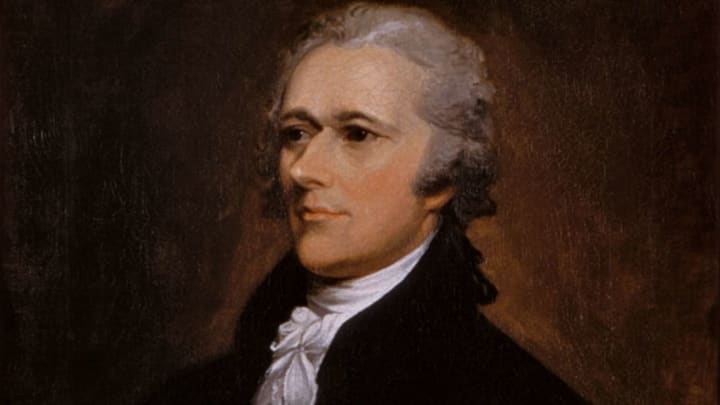When Aaron Burr shot Alexander Hamilton on July 11, 1804, the scene must have been eerily familiar to the former Secretary of the Treasury. After all, his son died in a similar setting just three years earlier.
On November 20, 1801, 19-year-old Philip Hamilton and his friend Richard Price had a run-in with a young lawyer named George I. Eacker at Manhattan's Park Theatre. A supporter of Thomas Jefferson, Eacker had delivered a Fourth of July speech that harshly criticized the elder Hamilton, and his son was apparently determined to take revenge.
On that fateful day in November, according to biographer Ron Chernow, Price and the younger Hamilton "barged into a box where Eacker was enjoying the show ... [then] began taunting Eacker about his Fourth of July oration."
As onlookers started to stare, Eacker asked the two young men to go into the lobby, where he called the pair "damned rascals." Tempers rose, and although the trio went to a tavern in an attempt to settle their differences, they failed miserably. Later the same night, Eacker had a letter from Price challenging him to duel.
Customs of the time meant that Eacker had little choice but to accept or face social humiliation. He and Price met that Sunday in New Jersey, where the penalties for dueling were less severe than in New York. They exchanged four shots without injury—and considered the matter between them closed.
Philip Hamilton wasn't so lucky. Cooler heads tried to negotiate a truce with Eacker's second, but their efforts were also for naught. Once the duel had been scheduled for November 23 on a sandbar in today's Jersey City, the elder Hamilton advised his son to preserve his honor and waste his first shot by either waiting until Eacker fired first or firing into the air, a move the French called the delope. The intent was to cut the duel short, and, if the other side fired to kill, plainly show they had blood on their hands.
Philip seemed to follow his father's advice. For about a minute after the duel officially began, neither man made a move. Then, Eacker raised his pistol, and Philip did, too. Eacker fired and hit Philip, who shot back, though it may have been an involuntary reaction to having been struck. The bullet tore through Philip's body and settled in his left arm. Despite being rushed to Manhattan, he died early the next morning.
On July 11, 1804, Alexander Hamilton and Aaron Burr also departed to New Jersey, this time to Weehawken, to settle their infamous differences. The elder Hamilton fired the first shot—and he aimed to miss. (According to his second, anyway.) Burr, on the other hand, seemed to have every intention of connecting with his target. He shot Hamilton in the stomach, and the bullet lodged in his spine.
Just like Philip, Hamilton died the next day.
Head over to our Alexander Hamilton biography page for more background behind Hamilton's famous duel with Aaron Burr.
